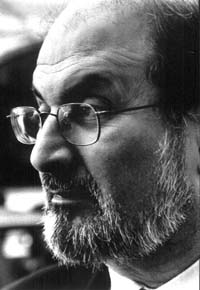|
Salman Rushdie--Eight Propositions for a Post-Modern/Post-Colonial Identity |
"I do not envy
people who think they have a complete explanation of the world, for the simple reason that
they are obviously wrong." "Literature is where I go to explore the highest and lowest places in human society and in the human spirit, where I hope to find not absolute truth but the truth of the tale, of the imagination and of the heart." "Not even the visionary or mystical experience ever lasts very long. It is for art to capture that experience, to offer it to, in the case of literature, its readers; to be, for a secular, materialist culture, some sort of replacement for what the love of god offers in the world of faith. " The following have been claimed concerning either Rushdie himself and/or his fiction. I would like us to test each proposition against our reading of East, West:Stories:
Likewise, look over the following model for modernism versus post-modernism. Which elements seem to apply best to Rushdie's fiction? |
|
Modernism |
Post-Modernism |
| romanticism/ symbolism | surrealism/ dadaism |
| form/ function | anti-form/ disjunction |
| purpose | play |
| design | chance |
| hierarchy | anarchy |
| mastery/ logos | exhaustion/ silence |
| art object/ finished | process/ happening |
| creation | deconstruction |
| presence | absence |
| centering | dispersal |
| root/depth | surface/ rhizome |
| interpretation | (mis)reading |
| grand narrative/universal | local history only |
| erotic | androgynous |
| origin and cause | indeterminacy |
